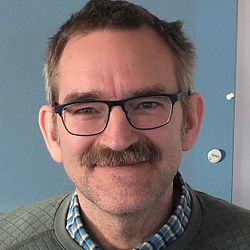Pressmeddelande -
EU Direct Payments Fail to Deliver
Over 40 billion Euros are given annually to European agriculture as direct payments under the Common Agricultural Policy. Yet, the policy fails to deliver on what EU citizens are promised. This is a key message from new research by AgriFood Economics Centre and Centre for Environmental and Climate Research, Lund University. Both in Sweden.
Direct payments are area-based income support under the Common Agricultural Policy (CAP), aiming to improve competitiveness and environmental sustainability, contribute to the preservation of biodiversity and the agricultural landscape, and food security. At present, the direct payments consume 72 percent of the CAP budget.
AgriFood’s report shows that direct payments are holding back rather than promoting competitiveness, particularly in productive regions. The payments encourage less profitable farms to stay in business, which creates difficulties for more productive farms to access land and expand. Farms would be fewer without the payments, but larger and more profitable.
“Market forces are better at creating a competitive sector”, notes Mark Brady, Associate Professor at AgriFood. “We show that direct payments do the sector a disservice by holding back structural change.”
What´s more, the payments stimulate production, thereby intensifying environmental pressure from agriculture and pressing down prices received by farmers. The environmental conditions attached to the payments are insufficient to reduce degradation, owing to the weak linkages between the conditions and environmental problems.
“The requirements largely ignore that agricultural and environmental conditions vary enormously across the EU”, Torbjörn Jansson points out, also a researcher at AgriFood. “As a result they often miss their mark by a long shot.”
The bottom line is that the direct payments are bad for competitiveness and the environment in productive regions. However, in less productive areas the payments have very different consequences. By supporting extensive farming in marginal regions, the payments help to preserve the agricultural landscape, conserve biodiversity, and contribute to food security by maintaining a reserve of agricultural land.
“Our analysis shows that there is a real risk for farm closures in less productive areas if they don’t receive some form of payment for maintaining the cultural landscape. We might want to go on supporting these areas for environmental reasons”, Mark Brady continues.
The report finds that the current CAP is anything but efficiently promoting competitiveness and sustainability. The authors stress though that there is great potential for improving the CAP, and emphasise the importance of policy instruments that are better aligned with specific challenges.
“If the EU is serious about the CAP goals it is impossible to continue on the current path”, Torbjörn Jansson concludes. “European agriculture is facing immense challenges, but it is fully feasible to design a policy that contributes to long-term sustainability and competitiveness.”
AgriFood Economics Centre is a joint research platform of the School of Economics and Management at Lund University and the Swedish University of Agricultural Sciences.
Contact:
Mark.Brady@slu.se, tel +46-(0)40 41 50 05
The report:

